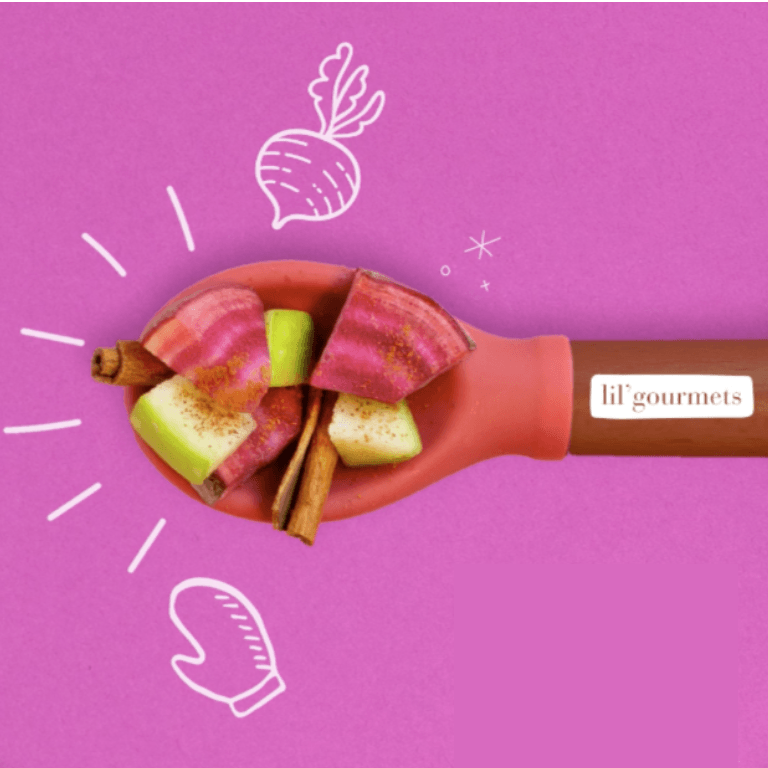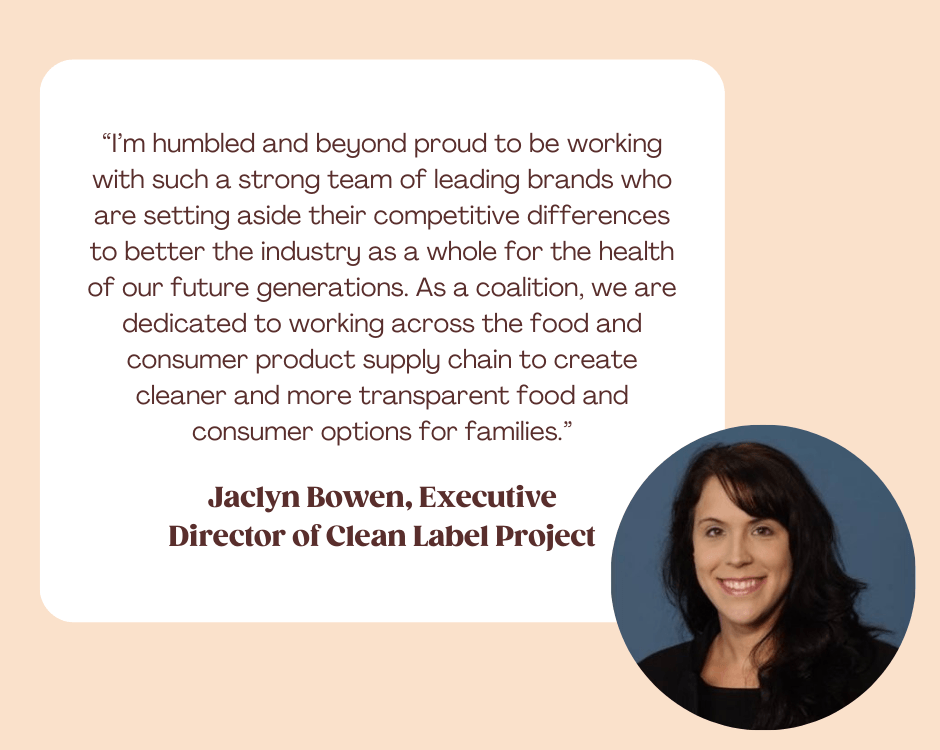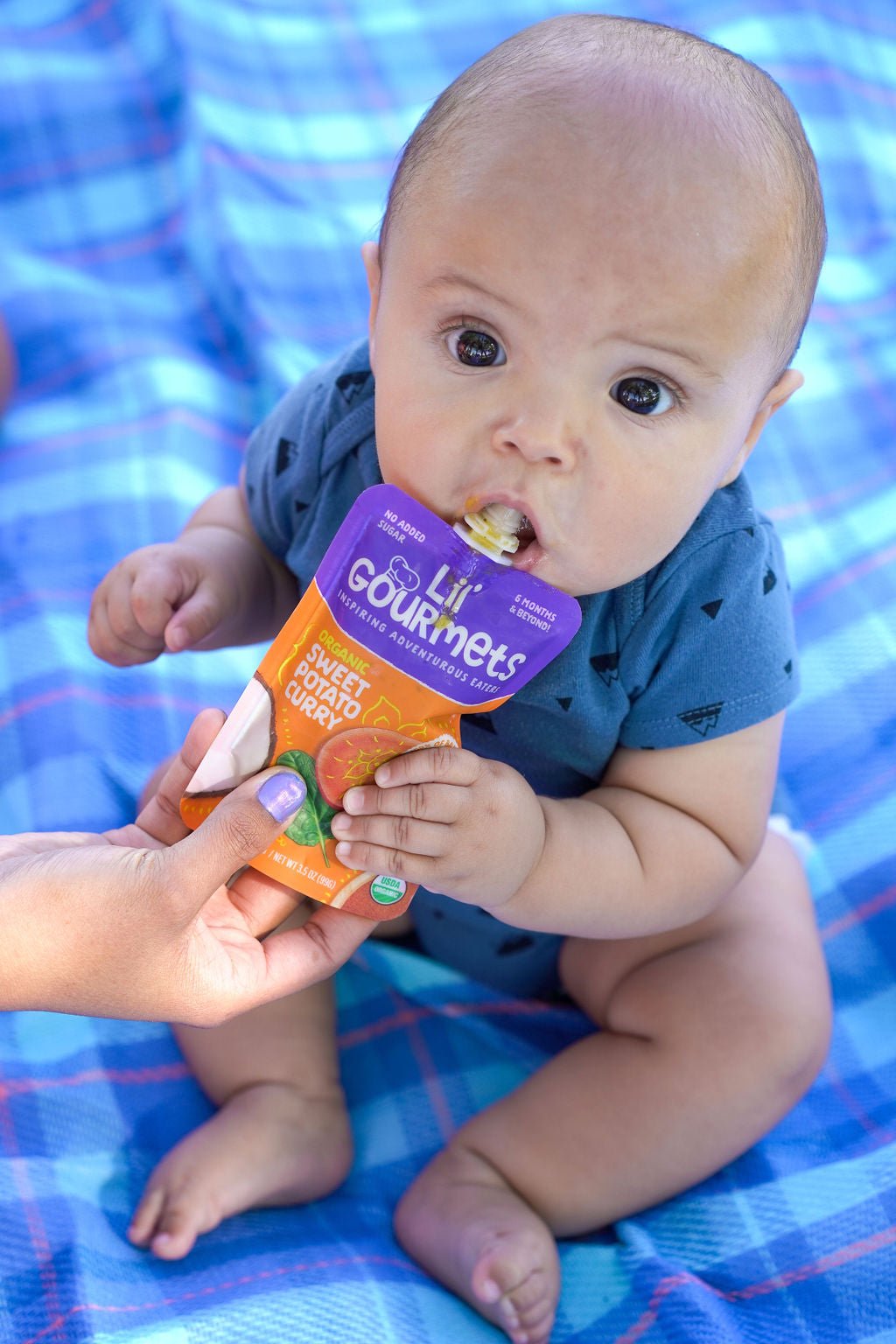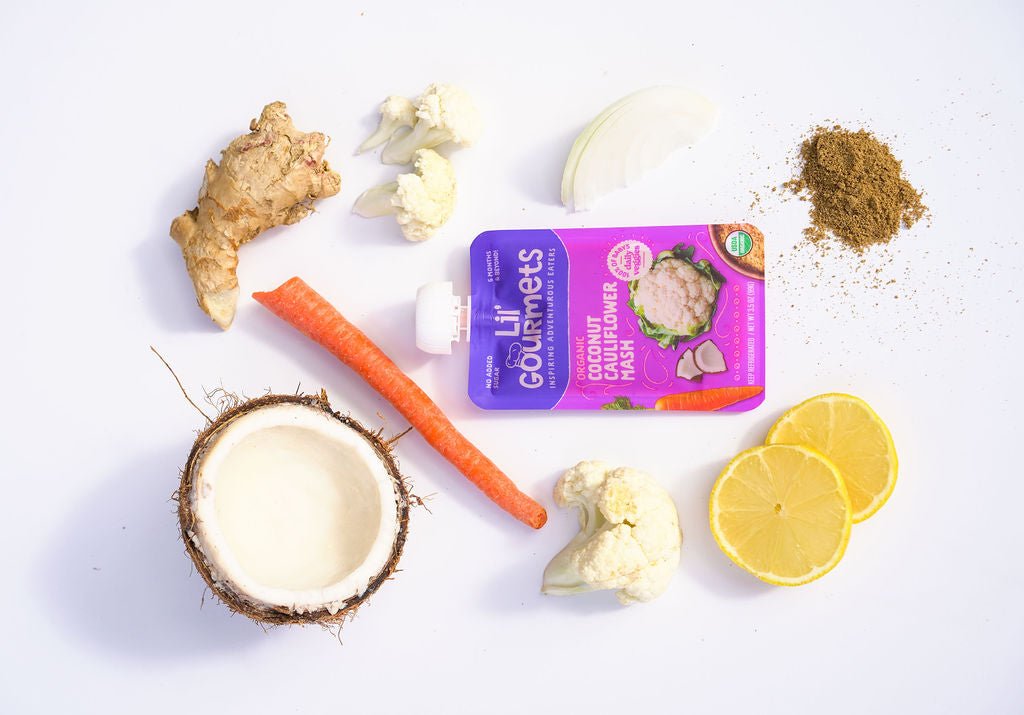
Being a new parent opens you up to a world full of new questions you never knew you would have. Many of them stem from our favorite topic: food. When do I start my baby on solids? What should I start with? How can I decrease constipation? How do I ensure they receive the appropriate amount of nutrients? The list goes on... and on! Who ever said being a parent is easy?
To help out, we sat down with our Pediatric Advisor, Dr. Rupa Mahadevan, to learn about the top seven questions she gets asked by her patients when it comes to starting solids in infants.
Question 1: When should I start solid food?
It’s recommended to start solid foods when you start to see good head control, which usually happens around 5-6 months of age. Talk to your pediatrician about first foods during your four-month visit to plan which foods to try before your six-month visit. Planning ahead is key! At four months, most nutrients will come from breast milk or formula, so think about these early foods as a great time to introduce a variety of flavors, or “flavor train” to help shape your baby’s future eating habits.
Question 2: What foods should I start with?
Dr. Rupa, the Partnership for a Healthier America, and many other infant nutrition experts recommend starting with vegetables first. Dr. Rupa also recommends to slowly introduce fruit as a dessert or snack. The goal is to help babies accept and like vegetables first before introducing sweet fruit which they tend to readily accept (us too!). Great first foods to start with are avocados, sweet potatoes, beets, cauliflower, squash, zucchini, oatmeal, eggs, and nut butters since they all have different flavor profiles, colors and textures. Herbs and spices are also great for infants to try because of the flavor and nutrients they add. (Check out our article 7 Herbs and Spices to Introduce to Baby).
Question 3: What’s better? Purees or baby led weaning? Do I have to pick one?
Dr. Rupa recommends both! Self-feeding is an opportunity for learning and self-exploration; you can give your baby appropriately sized foods alongside pureed foods with an extra spoon to encourage spoon-feeding (Check out our article What a mess! Why a Messy Baby Means Healthy Brain Development for more on this topic). Whichever method you do choose, the same recommendation stands: give your baby vegetable-focused foods to start, don’t be afraid to add herbs or spices, and provide the time and space for them to explore the food. Let your baby hold the food, play with it, see the colors, feel the textures and of course bring it to their mouth. Self-exploration helps babies develop a healthy relationship with food and encourages them to be open to trying new things.
Question 4: How can I avoid a picky eater?
Variety is key here! The more options you offer your baby, the better their taste and palate develops over time and the more likely they are to enjoy eating a wide range of vegetables, fruit, protein, spices, and herbs. On average, you have to introduce a new food 7-21 times in order for your baby to acquire a taste for it! If they spit out broccoli or cabbage, it doesn’t mean they don’t like it. It means they might not have acquired a taste for it yet.
Another trick is offer two choices so they feel like they have some level of control over the process (don’t worry you can still pick two foods you would be equally happy with them eating!). The latest research shows there are 3 ways to entice infants and toddlers to try new foods:
- Use a dipping sauce like carrots with hummus (we love to dip veggies in our Organic Pumpkin + Bean Shawarma baby food puree)
- Cut vegetables and fruits into fun shapes with a variety of colors like a circular beet with two peas as eyes
- Model the behavior you want your child to follow
Question 5: Is it okay to hand my baby a pouch to self-feed?
Pouches can be a great option on the go, but when you’re at home, Dr. Rupa recommends letting your baby see and feel the food. Spoon feeding and baby-led weaning supports motor skills and hand-eye coordination and also teaches babies to recognize satiety cues. Chewing food also helps to increase muscles of mastication which support speech development.
Question 6: Which foods boost the immune system, help with constipation, and aid in brain development?
Immune System
70% of the immune system is the gut! Vegetables and fruits are known to boost the immune system the most because they are filled with phytonutrients, which are compounds in plants that help prevent disease. We also know that foods that cause inflammation are sugar, processed meats, and fried food. When foods are high in sugar, it causes more inflammation in the body. The fix? Encourage your babies and toddlers to eat food from the rainbow! And look for products with turmeric, cinnamon, and ginger to help boost the immune system.
Fun fact: all our baby meals contain at least one of these ingredients!
Constipation
The best way to prevent constipation is increasing fiber and water in the diet. Fiber tends to come from green leafy vegetables as well as prebiotic rich foods. These can include whole grains, beans, and bananas. When starting solids, Dr. Rupa recommends starting water as well to help with digestion.
Organic Moroccan Squash, Organic Pumpkin + Bean Shawarma, and Organic Corn + Bean Gazpacho are all high sources of fiber!
Brain Development
Omega 3s are great for developing the brain! Think about increasing foods that are high in omega 3s such as avocados, nut butters, chia seeds and flax seeds, or flavoring food with soybean oil, avocado oil, and fish oil.
Question 7: How should I think about sugar and my baby’s introduction to it?
The USDA recently released guidelines that say added sugar should be completely avoided for children under 2. When introducing solids, Dr. Rupa recommends sticking to fruit sugars since they are natural forms of sugar. Another great way to sweeten foods is by adding cinnamon! When buying store-bought items, try looking for products with no added sugar and to have a goal of purchasing products that have no more than 5 grams of natural sugars per serving.
Wrapping it up
We hope Dr. Rupa’s insights on these 7 key questions when starting your baby on solid foods helps. Any time we can help you take a breather, whether it’s getting you the information you need or supporting you on a hectic day with a lil’gourmets baby meal, we’ve done our job. If you have more questions, we’d love to hear from you! Simply message us on Instagram at @lilgourmets or send us an email at hello@lilgourmets.com. Happy eating!




